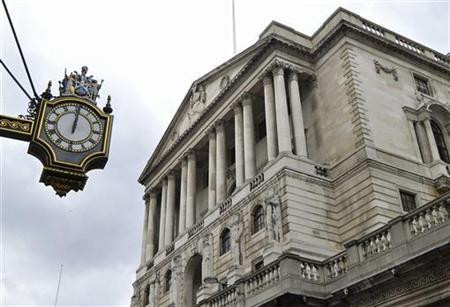Central Banks Watch: South Korea and Indonesia to Set Rates and BoE to Release Quarterly Inflation Report
Rate decisions by South Korea and Indonesia will be examined closely

The second week of November does not have any major central bank decisions on the calendar, but the two Asian banks set to decide the rates – South Korea and Indonesia – will be watched for their vulnerability to global interest rates and related portfolio rebalancing.
The next important central bank event of the upcoming week will be the Bank of England's quarterly inflation report, scheduled on Wednesday. The BoE statement could even grab the centre stage if it contain some clearer indications of policy path for UK.
It is mainly because of the big policy divergence at the global level, that has come into the limelight after the latest announcements by the Federal Reserve and Bank of Japan in October.
After the October shocks, the European Central Bank (ECB) and the BoE decided rates in the first week of November, and they continued to be focused on the challenges on the growth as well as inflation fronts, further strengthening the dollar and weakening yen and other majors.
The Bank of Korea and Bank Indonesia will announce policy rates on Thursday. The former has it currently at 2% and the latter has it at 7.5%.
South Korea
The Korean decision will be more significant given the won is actively traded against the dollar as well as yen. The sharp sell-off in the yen coupled with the strong rally in the dollar has led the Korean currency to a dual forex challenge, and the Bank of Korea (BoK) has to have some tools to address the same.
From the mid-October low of 9.9, the KRW/JPY cross has rallied as much as 7% to hit a new multi-year high of 10.6 by the end of the month, where it is currently holding.
The USD/KRW pair had touched a 7-year low of 1007.90 in July but has been on an upward trend in the following months and has hit a 14-month high of 1098.10 this month.
The BoK decision will also be significant as it had surprised markets last month with a cut in the base rate. The 25 basis points cut on 15 October was the second cut in the prior three months.
Indonesia
The Bank Indonesia (BI) has been keeping the main lending rate at 7.5% since late last year after hiking it by 175 basis points.
While keeping the rate steady at the 7 October meeting, the BI said that policy in Indonesia is consistent with efforts to control inflation towards its target corridor of 4.5±1% in 2014 and 4.0±1% in 2015, as well as to reduce the current account deficit to a more sustainable level.
However, the 5 November GDP data revealed a much weaker picture, making the call for further policy support louder.
Indonesian economy expanded 5.01% year-on-year in the third quarter of 2014, the slowest growth rate since 2009, official data showed. The slowdown was because an increase in government spending was unable to offset slowing investment and a decline in exports.
USD/IDR has been holding above 12,000 since September and has hit a new multi-year high of 12,295 in October before seeing some mild correction. The pair has held a range of 12,085 to 12,220 so far in November, broadly keeping the uptrend since July 2011.
Bank of England Inflation Report
With the latest inflation and GDP figures coming negative surprises, the BoE may lighten its hawkishness in the upcoming report, thereby leading to a sell-off in the British pound.
From the 2011 high of above 5% reading, UK inflation rate has fallen to 1.2%, a multi-year low, by September. The GDP growth had recorded an 8-year high of 3.2% in the second quarter but has eased to 3% in the third quarter.
Pound Sterling has been already under pressure thanks to the sharp dollar rally and any official confirmation by the central bank of the current economic challenges will make the pound bears even more aggressive.
In the August report the BoE said: "Inflation is close to the MPC's 2% target and is projected to remain close to the target in the period ahead. As slack has been absorbed, financial market expectations of the date of the first Bank Rate rise have moved forward."
"But when Bank Rate does begin to rise, the pace of rate increases is expected to be gradual, with rates probably remaining below average historical levels for some time," the central bank said.
Now with the inflation has fallen well below the target, the central bank communication on Wednesday will be of special importance for markets across the globe.
Other Reports
The Reserve Bank of New Zealand will release its Financial Stability Report on Tuesday, and on Thursday, the ECB will publish its monthly report and the Bank of Canada its review.
With global commodity prices having fallen to multi-year lows, both Canada and New Zealand would like to see their currencies weaker, thanks to their dependence on commodity exports.
The Canadian and New Zealand dollars have weakened recently in response to the greenback strength but markets will be interested to know how the respective authorities view things.
Speakers
The RBNZ Governor Wheeler will address the press shortly after the FSR release on Tuesday and his remarks could move markets, especially the Kiwi dollar.
The Fed officials on speakers' calendar for the upcoming week are Boston Fed's Rosengren (Monday), Minneapolis's Narayana Kocherlakota and Philadelphia Fed's Plosser (Wednesday) and the senior Fed official Bullard (Friday).
© Copyright IBTimes 2024. All rights reserved.























